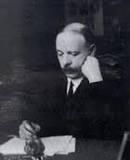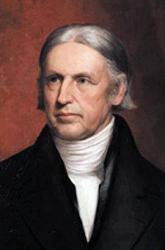Planning worship?
Check out our sister site, ZeteoSearch.org,
for 20+ additional resources related to your search.
- |
User Links
Person Results
‹ Return to hymnal






Export as CSV
Ignaz Pleyel
1757 - 1831 Person Name: Ignace J. Pleyel Hymnal Number: 394 Composer of "PLEYEL'S HYMN" in Christian Science Hymnal (Rev. and enl.) Ignaz Joseph Pleyel; b. Ruppertstahl, near Vienna, 1757; d. Parice France, 1831
Evangelical Lutheran Hymnal, 1908
Ignaz Pleyel
Charles Wood

1866 - 1926 Hymnal Number: 286 Arranger of "CHESHIRE" in Christian Science Hymnal (Rev. and enl.)
Charles Wood
Edward Miller

1735 - 1807 Hymnal Number: 188 Composer of "ROCKINGHAM" in Christian Science Hymnal (Rev. and enl.) Edward Miller, Born in the United Kingdom. The son of a pavior (stone paver), Miller left home to study music at King's Lynn. He was a flautist in Handel's orchestra. In 1752 he published “Six Solos for the German Flute”. In 1756 he was appointed organist of St. George Minster Doncaster, continuing in that post for 50 years. He also gave pianoforte lessons. He published hymns and sonatas for harpsichord, 16 editions of “The Institues of Music”, “Elegies for Voice & Pianoforte”, and Psalms of David set to music, arranged for each Sunday of the year. That work had over 5000 subscribers. He published his thoughts on performance of Psalmody in the Church of England, addressed to clergy. In 1801 he published the Psalms of Watts and Wesley for use by Methodists, and in 1804 the history and antiques of Doncaster with a map.
John Perry
Edward Miller
Louis Spohr
1784 - 1859 Hymnal Number: 230 Composer of "SIMPSON" in Christian Science Hymnal (Rev. and enl.) Also:
Spohr, Ludwig, 1784-1859
Shpor, Lui, 1784-1859
Spohr, L. (Louis), 1784-1859
Shpor, Ludvig, 1784-1859
Spohr, Ludewig, 1784-1859
Louis Spohr
Clement Cotterill Scholefield

1839 - 1904 Person Name: Clement C. Scholefield Hymnal Number: 381 Composer of "ST. CLEMENT" in Christian Science Hymnal (Rev. and enl.) Rev. Clement C. Scholefield (b. Edgbaston, near Birmingham, Warwickshire, England, 1839; d. Goldalming, Surrey, England, 1904) Educated at St. John's College, Cambridge, he was ordained in the Church of England in 1867. He served at Hove, Brighton, St. Peter's in Kensington (1869-1879), and briefly at St. Luke's in Chelsea. From 1880 to 1890 he was chaplain at Eton College and from 1890 to 1895 vicar of Holy Trinity in Knightsbridge. Mainly self-taught as a musician, Scholefield became an accomplished pianist and composed some songs and hymn tunes.
Bert Polman
Clement Cotterill Scholefield
Herbert Stanley Oakeley
1830 - 1903 Person Name: Herbert S. Oakeley Hymnal Number: 133 Composer of "ABENDS" in Christian Science Hymnal (Rev. and enl.)
Herbert Stanley Oakeley
F.-H. Barthélémon

1741 - 1808 Person Name: François H. Barthélémon Hymnal Number: 384 Composer of "MORNING HYMN" in Christian Science Hymnal (Rev. and enl.) French violinist, composer, teacher, he became active in England, playing in an Italian comedy orchestra and led a band. He wrote opera, ballet, theatre music and ballads, popular songs, masques, concertos and 6 symphonies.
John Perry
F.-H. Barthélémon
William Knapp

1698 - 1768 Hymnal Number: 391 Composer of "WAREHAM" in Christian Science Hymnal (Rev. and enl.) Born: 1698, Wareham, Dorsetshire, England.
Died: September 26, 1768, Poole, Dorsetshire, England.
Buried: Poole, Dorsetshire, England.
William Knapp
Hosea Ballou

1771 - 1852 Hymnal Number: 384 Author of "When God is seen with men to dwell" in Christian Science Hymnal (Rev. and enl.) Ballou, Hosea, a celebrated leader of the sect of Universalists, was born at Richmond, New Hampshire, April 30, 1771. He was entirely self-educated, and began to preach when about 21. In 1807 he settled at Portsmouth, New Hampshire, passing to Salem, Mass., in 1815, and to Boston in 1817. He died in 1852. To the Universalist Hymns composed by different Authors, published in 1808, he contributed 199 hymns. A few of these are still used by the Universalists, but one only, and that probably his best, has passed beyond their ranks. It is:—
When God descends with men to dwell. The Second Advent. Ballou also edited with Turner a second collection in 1821, and a third in his own name, 1837. [Rev. F. M. Bird, M.A.]
-- John Julian, Dictionary of Hymnology (1907)
Hosea Ballou
Thomas Cotterill
1779 - 1823 Hymnal Number: 266 Author (attributed to) of "Our God is Love, and all His sons" in Christian Science Hymnal (Rev. and enl.) Thomas Cotterill (b. Cannock, Staffordshire, England, 1779; d. Sheffield, Yorkshire, England, 1823) studied at St. John's College, Cambridge, England, and became an Anglican clergyman. A central figure in the dispute about the propriety of singing hymns, Cotterill published a popular collection of hymns (including many of his own as well as alterations of other hymns), Selection of Psalms and Hymns in 1810. But when he tried to introduce a later edition of this book in Sheffield in 1819, his congregation protested. Many believed strongly that the Church of England should maintain its tradition of exclusive psalm singing. In a church court the Archbishop of York and Cotterill reached a compromise: the later edition of Selection was withdrawn, and Cotterill was invited to submit a new edition for the archbishop's approval. The new edition was published in 1820 and approved as the first hymnal for the Anglican church of that region. Cotterill's suppressed book, however, set the pattern for Anglican hymnals for the next generation, and many of its hymns are still found in modern hymnals.
Bert Polman
===============
Thomas Cotterill was born in 1779; studied at S. John's College, Cambridge, graduating M.A.; ordained in 1806, and enterred upon parochial work at Tutbury; afterwards removed to Lane End, where he remained for nine years among the Potteries; in 1817, became perpetual Curate of S. Paul's, Sheffield. He died in 1823. He was the author of several books; among them, "A Selection of Psalms and Hymns for Public and Private Use, adapted to the Services of the Church of England." In the preparation of this collection (the 8th ed., 1819), he had the assistance of Montgomery, who in this work did what he condemned in others, viz., altering and remodeling other authors' hymns.
--Annotations of the Hymnal, Charles Hutchins, M.A., 1872.
======================
Cotterill, Thomas, M.A., was the son of a woolstapler at Cannock, Staffordshire, where he was born Dec. 4, 1779. After attending the local boarding-school of the Rev. J. Lomax, he proceeded to the Free School, Birmingham. He graduated at St. John's College, Cambridge (B.A. 1801, M.A. 1805), of which he became a Fellow. Taking Holy Orders, he became Curate of Tutbury in June, 1803 (not 1806, as stated by Miller in Singers & Songs of the Church). His subsequent charges were the Incumbency of Lane End, Staffordshire, 1808-17, and the Perpetual Curacy of St. Paul's Sheffield, 1817-23. He died at Sheffield Dec. 29, 1823 (not Jan. 5, 1824, as in the Gentleman’s Magazine), aged 44. His volume of Family Prayers attained to the sixth edi¬tion in 1824. As a hymn-writer, Cotterill is less known than as the compiler of a Selection of Psalms and Hymns which has had a most marked effect on modern hymnals. The first edition of that Selection was published in 1810, and the 9th in 1820. All subsequent issues were reprints of the last. The most important edition is the 8th, 1819. To that Selection Cotterill contributed at various dates 25 original hymns and versions of individual psalms. These, in common with all the hymns in the Selection, are given without author's name. Through the aid, however, of marked copies [in the collections of Brooke and Julian] and of members of Cotterill's family, we are enabled to identify most, if not all, of his original productions. In addition to those which are annotated under their first lines, we have—
i. In his Selection of Psalms & Hymns for Public and Private Use, adapted to the Festivals of the Church of England, &c, 1st ed., 1810:—
1. Awake, O sword, the Father cried. Atonement.
2. Before Thy throne of grace, O Lord. Lent.
3. From Sinai's mount, in might array'd. The Law and the Gospel.
4. From Thine all-seeing Spirit, Lord. Ps. 139.
5. In all the ways and works of God. Ps. 145.
6. Out of the deeps, O Lord, we call. Ps. 130.
7. The Lord, who once on Calvary. The Intercessor. This is based on “Where high the heavenly temple stands," q. v.
ii. In the Appendix to the 6th ed. of the same Selection, Staffordshire, 1815:—
8. Blessed are they who mourn for sin. Lent.
9. Father of mercies, let our songs [way, ways]. Thanksgiving.
10. I was alive without the law. Lent.
11. Lord of the Sabbath, 'tis Thy day. Sunday.
iii. In the 8th edition of the same, 1819 :—
12. Help us, O Lord, Thy yoke to wear. Charity Sermons. This is sometimes given as "Lord, let us learn Thy yoke to wear," as in Kennedy, 1863, &c.
13. I love the Lord, for He hath heard. Ps. 116.
14. Lo in the East a star appears. Epiphany. This in an altered form begins in Kennedy, 1863, No. 188, with stanza ii., "The ancient sages from afar."
15. Lord, cause Thy face on us to shine. For Unity.
16. When Christ, victorious from the grave. Easter. The 9th ed. of the Selection, 1820, was practically a new work. It was compiled by Cotterill, but revised by Dr. Harcourt, the Archbishop of York, and was dedi¬cated to him. It was the outcome of the compromise in the legal proceedings over the 8th ed., 1819. The 8th ed. contained 367 hymns in addition to 128 versions of the Psalms and 6 Doxologies, the 9th only 152. Its full title was A Selection of Psalms and Hymns for Public Worship, Lond., T. Cadell, 1820. It may be noted that copies of the 8th ed., 1819, are found with two distinct title-pages. One of these, accompanied with the preface, was for the general public, the second, without the preface, for the use of the congregations of St. James's and St. Paul's, Sheffield.
Of Cotterill's hymns the most popular are, "O'er the realms of pagan darkness," "Let songs of praises fill the sky," and "Jesus exalted far on high," but these are not distinguished by any striking features of excellence. He was more happy in some of his alterations of older hymns, and in the com¬piling of centos. Many of the readings introduced into the great hymns of the Church first appeared in his Selection. The most notable amongst these are, "Rock of Ages," in 3 stanzas, as in Hymns Ancient & Modern, 1861, the Wesleyan Hymn Book, and other collections; "Lo! He comes with clouds descending;" and “Great God, what do I see and hear." Cotterill's connection with the Uttoxeter Psalms & Hymns, 1805, is given in detail in the article on Staffordshire Hymn-books, and his lawsuit over the 8th ed. of his Selection, 1819, in the article on England Hymnody, Church of.
--John Julian, Dictionary of Hymnology (1907)
Thomas Cotterill


 My Starred Hymns
My Starred Hymns


